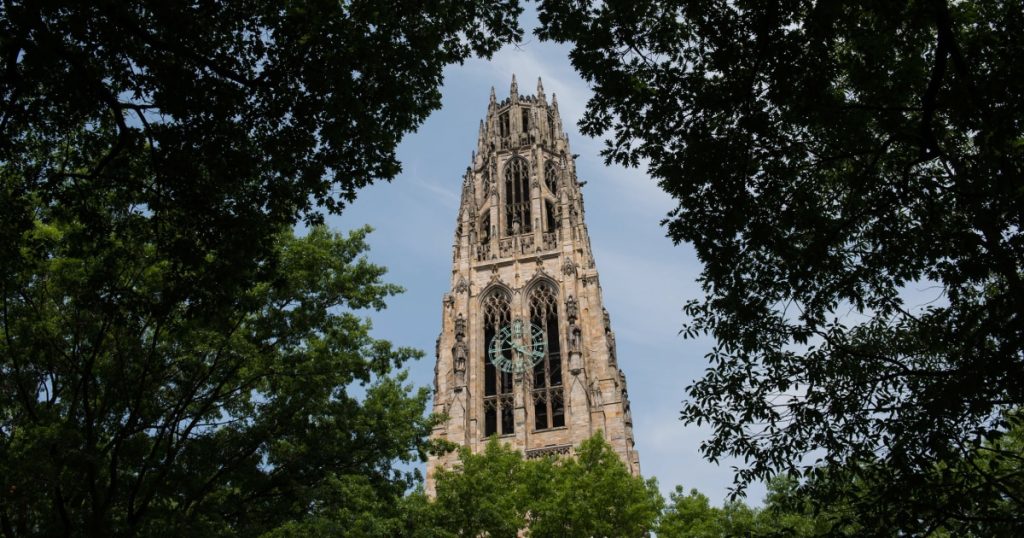Police officers arrested protesters who had set up an encampment on Yale University’s campus in support of the Palestinian cause. The protesters were urging Yale to divest from military weapons manufacturers, and had been camping out for three nights before being approached by officers on Monday morning. The police warned students and press to leave, or they would be arrested, and proceeded to arrest multiple people shortly afterwards. Although the exact number of arrests is unclear, at least 35 people were counted by the Yale Daily News. All remaining protesters were arrested by 8 a.m. and removed from the plaza.
After the arrests, a crowd of over 200 protesters blocked an intersection on campus as organizers announced that those arrested were being charged with Class A misdemeanors. Forty police officers were reported to be on the scene, blocking students from entering the Schwarzman Center Rotunda. The tension on campus was further fueled by the fact that Columbia University in New York City was also dealing with pro-Palestinian protests and encampments, resulting in mass suspensions and arrests. This incident at Yale highlights the ongoing activism and confrontation surrounding the Israeli-Palestinian conflict on college campuses.
The arrests at Yale University come amidst a broader context of protests and demonstrations in support of the Palestinian cause, particularly in academic institutions. The protesters were calling for Yale to divest from military weapons manufacturers, in an effort to align the university’s investments with their ethical and political values. The involvement of police in arresting the protesters reflects the contentious nature of these issues and the varying responses by institutions and authorities to activism and dissent on campus.
The police action at Yale sparked a significant backlash, with organizers and supporters gathering to protest the arrests and charges brought against the detained individuals. The large crowd that gathered after the arrests demonstrates the level of support and solidarity within the community for the Palestinian cause and the protesters’ demands. The response by both police and protesters indicates the deeply held beliefs and passions surrounding the Israeli-Palestinian conflict, and the extent to which these issues continue to galvanize activism and advocacy on college campuses.
The methods employed by police in response to the encampment and protests reveal the challenges and complexities faced by institutions in addressing contentious and divisive issues. The decision to arrest protesters and clear the plaza highlights the conflicting priorities of upholding order and security on campus, while also respecting the rights of individuals to engage in peaceful protest and advocacy. The tensions that arose as a result of the arrests underscore the need for dialogue, understanding, and engagement in addressing the underlying issues and grievances that have led to such confrontations.
In conclusion, the arrests of protesters at Yale University underscore the ongoing activism and advocacy in support of the Palestinian cause on college campuses, and the challenges faced by institutions and authorities in responding to such protests. The incident reflects the deep divisions and passions surrounding the Israeli-Palestinian conflict, and the differing perspectives and approaches taken by various stakeholders. Moving forward, it will be important for institutions to engage in meaningful dialogue and address the root causes of these conflicts in order to promote understanding, peace, and justice on campus and beyond.













